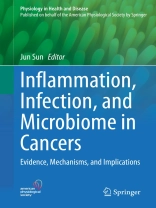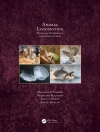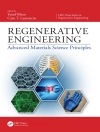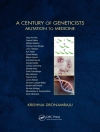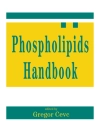This book offers a summary and discussion of the advances of inflammation and infection in various cancers. The authors cover the classically known virus infections in cancer, novel roles of other pathogens (e.g. bacteria and fungi), as well as biomarkers for diagnosis and therapy. Further, the chapters highlight the progress of immune therapy, stem cells and the role of the microbiome in the pathophysiology of cancers.
Readers will gain insights into complex microbial communities, that inhabit most external human surfaces and play a key role in health and disease. Perturbations of host-microbe interactions often lead to altered host responses that can promote cancer development. Thus, this book highlights emerging roles of the microbiome in pathogenesis of cancers and outcome of therapy. The focus is on mechanistic concepts that underlie the complex relationships between host and microbes. Approaches that can inhibit infection, suppress chronic inflammation and reverse the dysbiosis are discussed, as a means for restoring the balance between host and microbes. This comprehensive work will be beneficial to researchers and students interested in infectious diseases, microbiome, and cancer as well as clinicians and general physiologists.
Mục lục
Chapter 1: The Microbiome And The Hallmarks Of Cancer.- Chapter 2: Microbiome In Human GI Cancers.- Chapter 3: The Gut Microbiome And Colorectal Cancer.- Chapter 4: Salmonella Infection In Human Cancers.- Chapter 5: Biomarkers Of Esophageal Cancers And Precancerous Lesions.- Chapter 6: Epithelial And Immune Cell Responses To Helicobacter Pylori That Shape The Gastric Tumor Microenvironment.- Chapter 7: Microbiome And Liver Cancer.- Chapter 8: THE MICROBIOME AND UROLOGIC CANCERS.- Chapter 9: Role Of Infections And Tissue Inflammation In The Pathology Of The Fallopian Tube And High-Grade Serous Ovarian Cancer.- Chapter 10: Commensal Microbes And Their Metabolites: Influence On Host Pathways In Health And Disease.- Chapter 11: Dietary And Microbiome In Cancer Prevention.- Chapter 12: Autophagy And Cancer-Current Biology And Drug Development.- Chapter 13: Mitochondrial Regulation Of Inflammation In Cancer.- Chapter 14: Modern Germ-Free Study Designs And Emerging Static Housing Technology In A Growing ‘Human Microbiome’ Market.- Chapter 15: Machine Learning In Identification Of Disease-Associated Microbiota.- Chapter 16: Mediation Analysis Of Microbiome Data And Detection Of Causality In Microbiome Studies.
Giới thiệu về tác giả
Dr. Jun Sun is a tenured Professor of Medicine at the University of Illinois at Chicago (UIC), U.S.A.. She is an elected fellow of American Gastroenterological Association (AGA) and American Physiological Society (APS). She chairs the AGA microbiome section. Her research interests are host-microbiome interactions in inflammation and cancer. Her key achievements include 1) characterization of vitamin D receptor regulation of intestinal barrier and microbiome in inflammation and cancer, 2) identification of dysbiosis and intestinal dysfunction in amyotrophic lateral sclerosis (ALS), 3) characterization of bacteria in regulating intestinal stem cells and leading to cancer, and 4) identification and characterization of the
Salmonella protein Avr A in host-bacterial interactions. Dr. Sun has published over 190 scientific articles in peer-reviewed journals, including
Gut,
Gastroenterolog, Cell Stem Cells, Nature Genetics, JBC, Autophagy, American Journal of Pathology, & American Journal of Physiology-GI. She is the leading editor of 4 books on microbiome, including a
Nature/Spring book entitled “Mechanisms underlying host-microbiome interactions in pathophysiology of human diseases.” This book has shown a novel theme and multiple disciplinary topics of microbiome research for a broad audience. She is the author of
Nature/Spring book “Statistical Analysis of Microbiome Data with R
. This timely book addresses the statistical modelling and analysis of microbiome data using cutting-edge R software. She serves on the editorial board of more than 10 peer-reviewed international scientific journals. She services study sections for the NIH, American Cancer Society, and other national and international research foundations. She has been invited to chair meetings on microbiome, be a keynote speaker, and to write reviews, editorials, and comments on microbiome in human diseases published forpeer-reviewed journals. She is actively involved in advocating microbiome research at the international, national, and institutional levels. Her research is supported by the NIH, DOD, VA, and other research awards.
Dr. Sun is a believer of scientific art and artistic science. She enjoys writing her science papers in English and poems in Chinese. She teaches her medical fellows biomedical knowledge and also the way to translate the Chinese poems. In addition to her research papers and books, her poetry collection《让时间停留在这一刻 》“Let time stay still at this moment”, is published in 2018 by the Chinese Literature and History Press (中国文史出版社).
